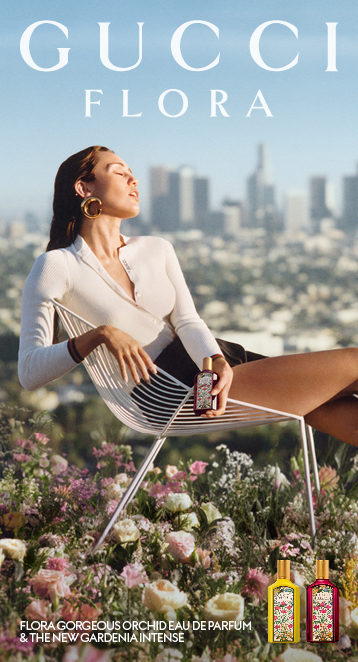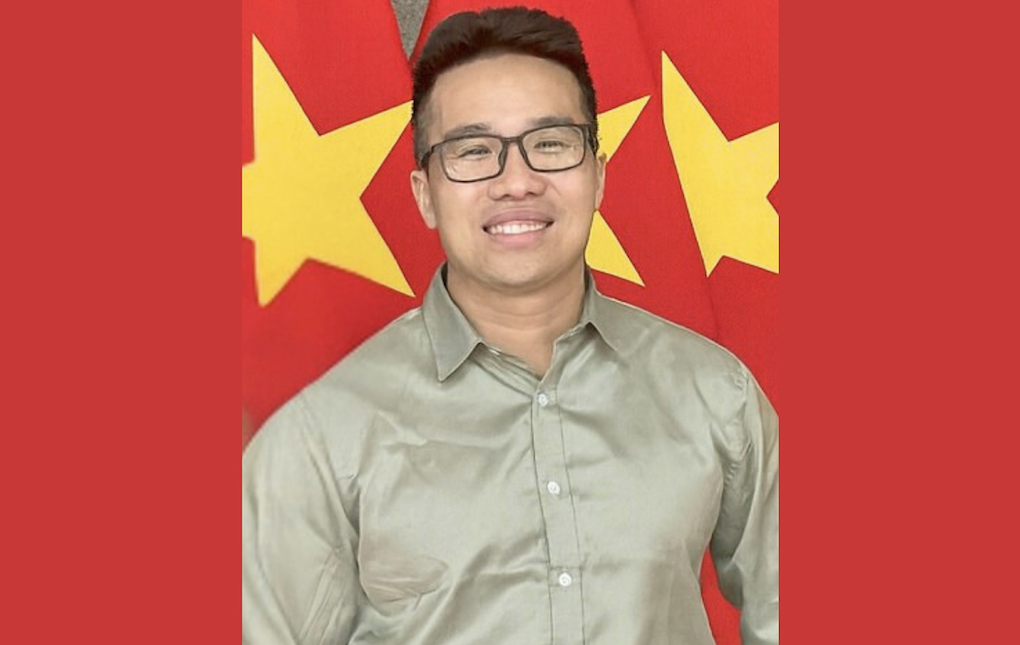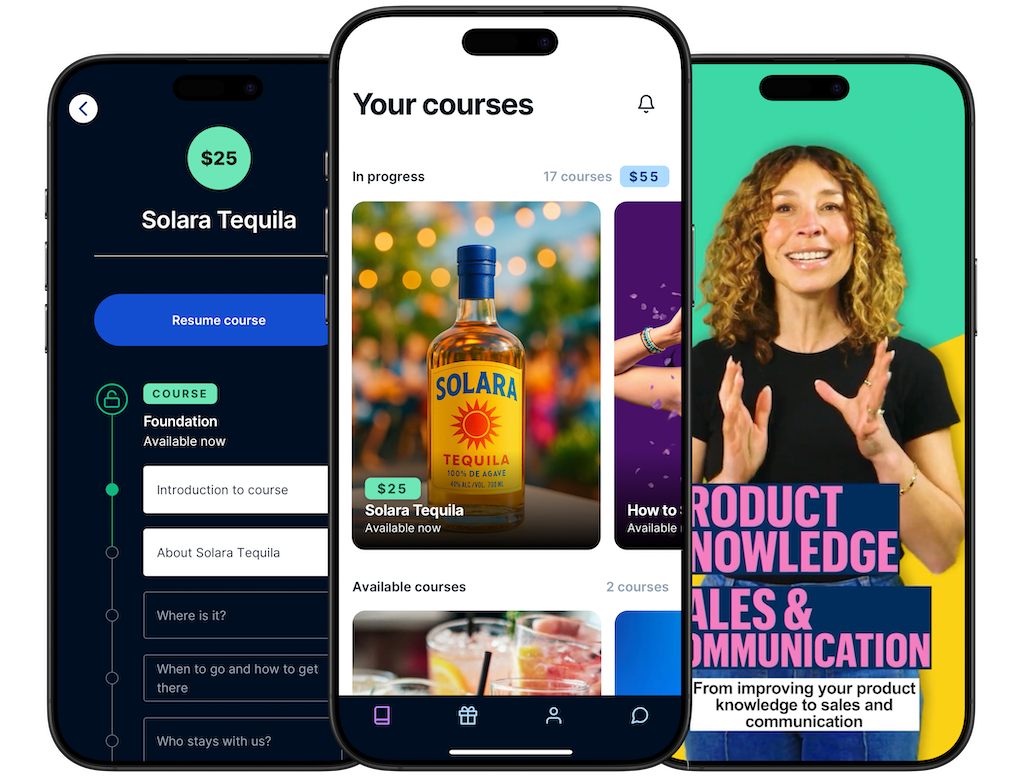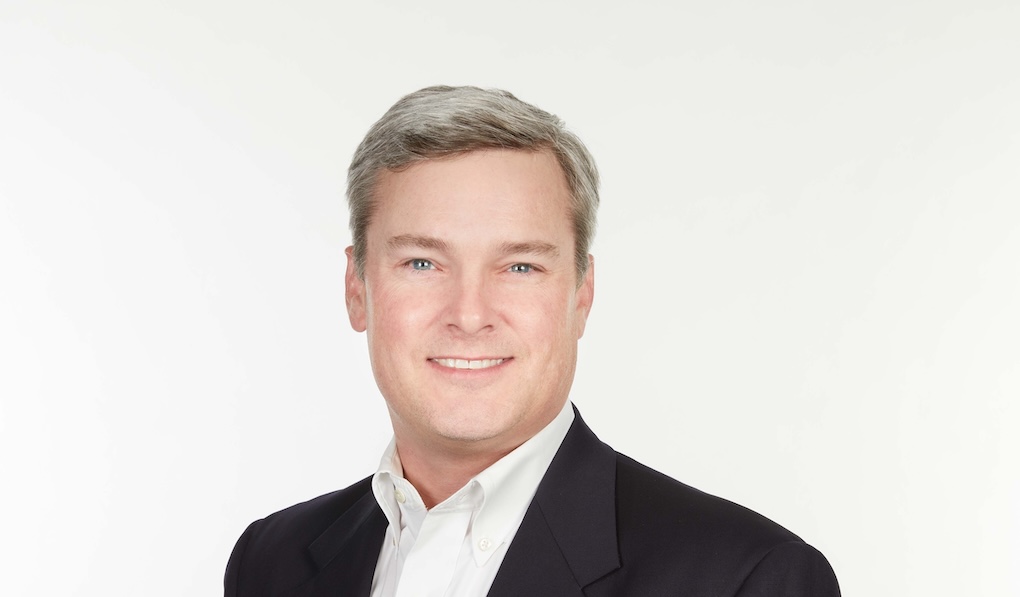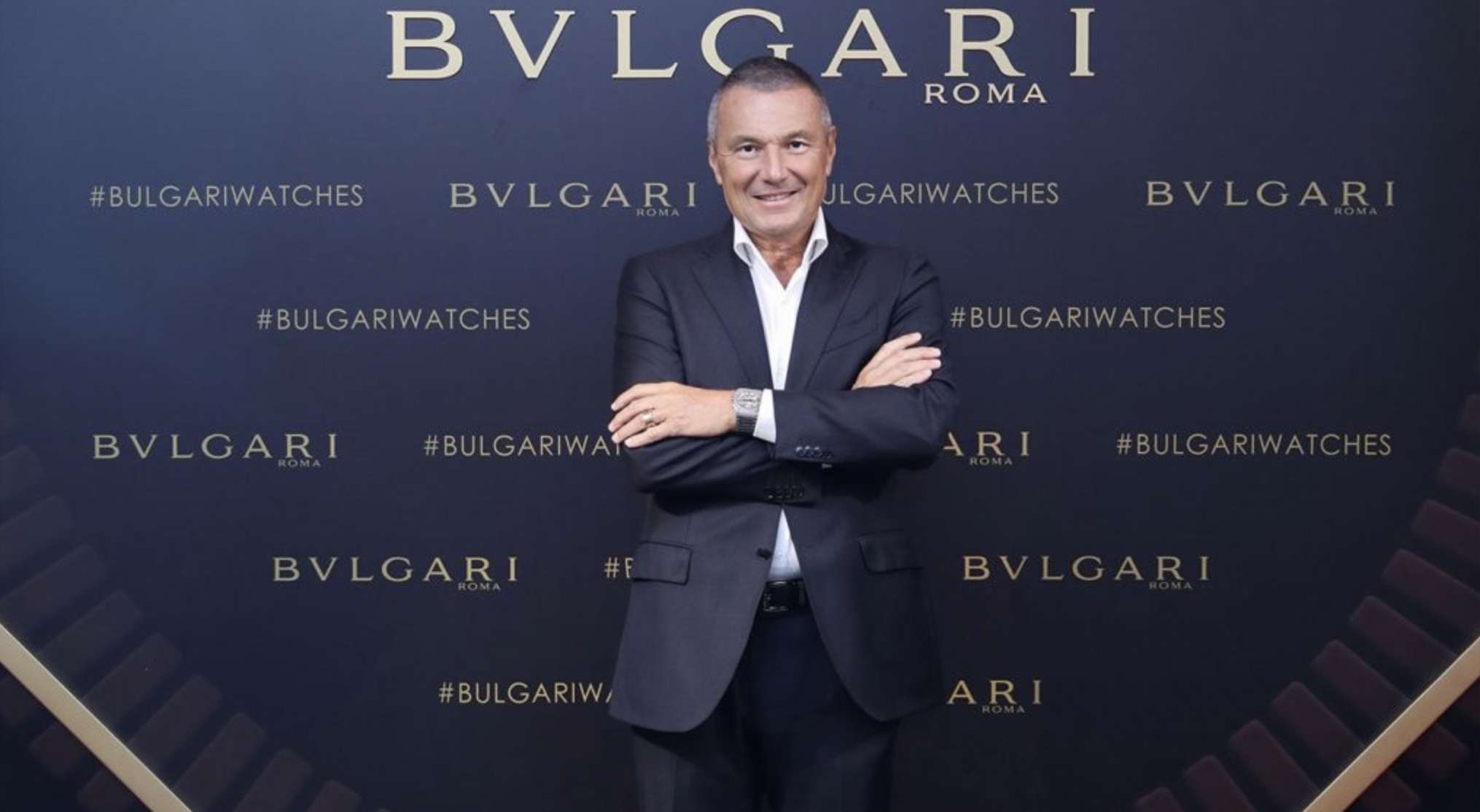
On the Record with Jean-Christophe BabinOn airport retail: Airports have and remain an important channel for us, because they enable us to reach our clients in a different way from the domestic market. On a Chinese travel rebound: In the post-COVID world, I don’t think the Chinese will ever go back to spending how they were during the pre-pandemic times. The past three years have changed the landscape. Chinese consumers have discovered the joys of shopping in the downtown duty free market in China, and particularly Hainan, because the retail environment, offer and prices in China are very competitive and exciting. On buying less but better: People now have a stronger appetite for super luxury products and experiences, at the expense of frequency of purchases. On the importance of upselling: Our focus is on the high rather than the low. 2023 will be a year of upselling. On Bvlgari’s premiumisation journey: To become the world’s most desirable brand, you must shift focus towards the super-premium end of the luxury spectrum. On the importance of ESG: Good values can turn you from a brand that a customer respects to a brand that a customer loves. On reinventing post-COVID: COVID has been a big tragedy, but for Bvlgari it gave us our best opportunity in decades to rebuild our future. |
Introduction: Bvlgari CEO Jean-Christophe Babin spoke to Hannah Tan-Gillies at the recent TFWA World Exhibition in Cannes to discuss the Roman luxury house’s renewed focus on clienteling, its premiumisation journey and its mission to become the world’s most desirable luxury brand.
Bvlgari has long been a believer in and champion of travel retail, backing that faith with commensurate investment, says CEO Jean-Christophe Babin. “Bvlgari was one of the first luxury houses to really embrace travel retail,” he says. “We were one of the first big luxury houses to go into the airport environment. It was quite a statement back then because airports were not considered luxury environments.
“Nowadays, some airports are even nicer than luxury malls. Airports have and remain an important channel for us, because they enable us to reach our clients in a different way from the domestic market.”
This commitment to the channel was especially true during the TFWA World Exhibition in 2021, when Bvlgari made a strong showing at a time when other luxury houses were notably absent. “It was the right decision to be here last year,” Babin says.
“This year, we are seeing a massive comeback for Bvlgari, and these great results were created thanks to our efforts last year. While other major brands were conservative about showing their support, it was important for Bvlgari to show up in a big way. Together we are stronger.”

“Travel retail is an important channel, but it has also been the most impacted by the recent crisis,” Babin adds. “This year, travel retail is coming back but it has evolved. Wines, spirits, perfumes and cigarettes have recovered faster than fine watches and jewellery which are more dependent on the Chinese traveller.”
The Chinese traveller — historically among the highest-spending travel retail consumers pre-pandemic times — is a key demographic for Bvlgari’s fine watches and jewellery business. However, while the industry waits for the return of the Chinese, Babin believes that the much-anticipated return may not exactly yield the expected results.
“Before COVID, travel retail spend was heavily skewed towards Chinese travellers, because the Chinese market had not reached the same level of maturity as other markets,” Babin explains. “With COVID limiting their travel, Chinese shoppers have now turned to the domestic offshore duty free market for their luxury purchases. China has become, in three years, what it would have become in ten years. Chinese spend was always going to go inwards and I think COVID simply accelerated that trend.”
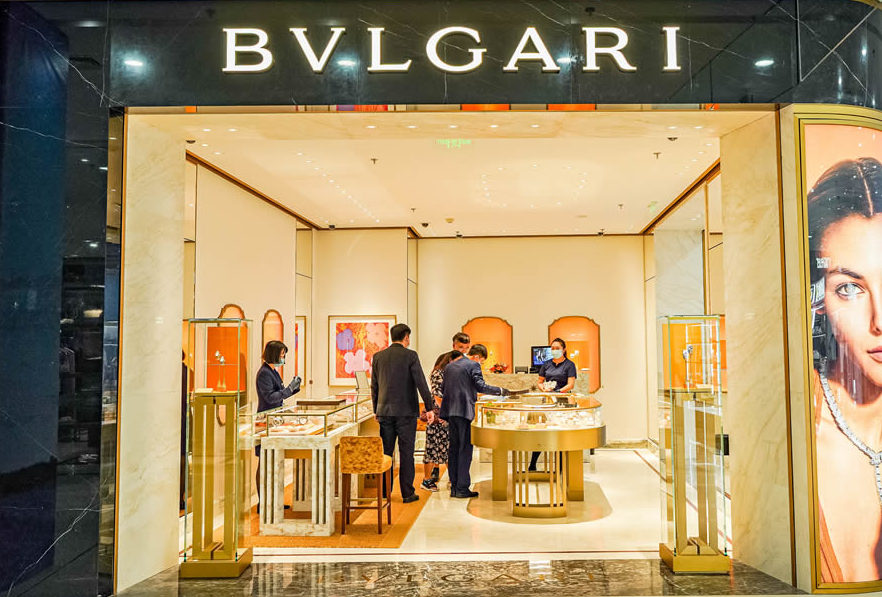
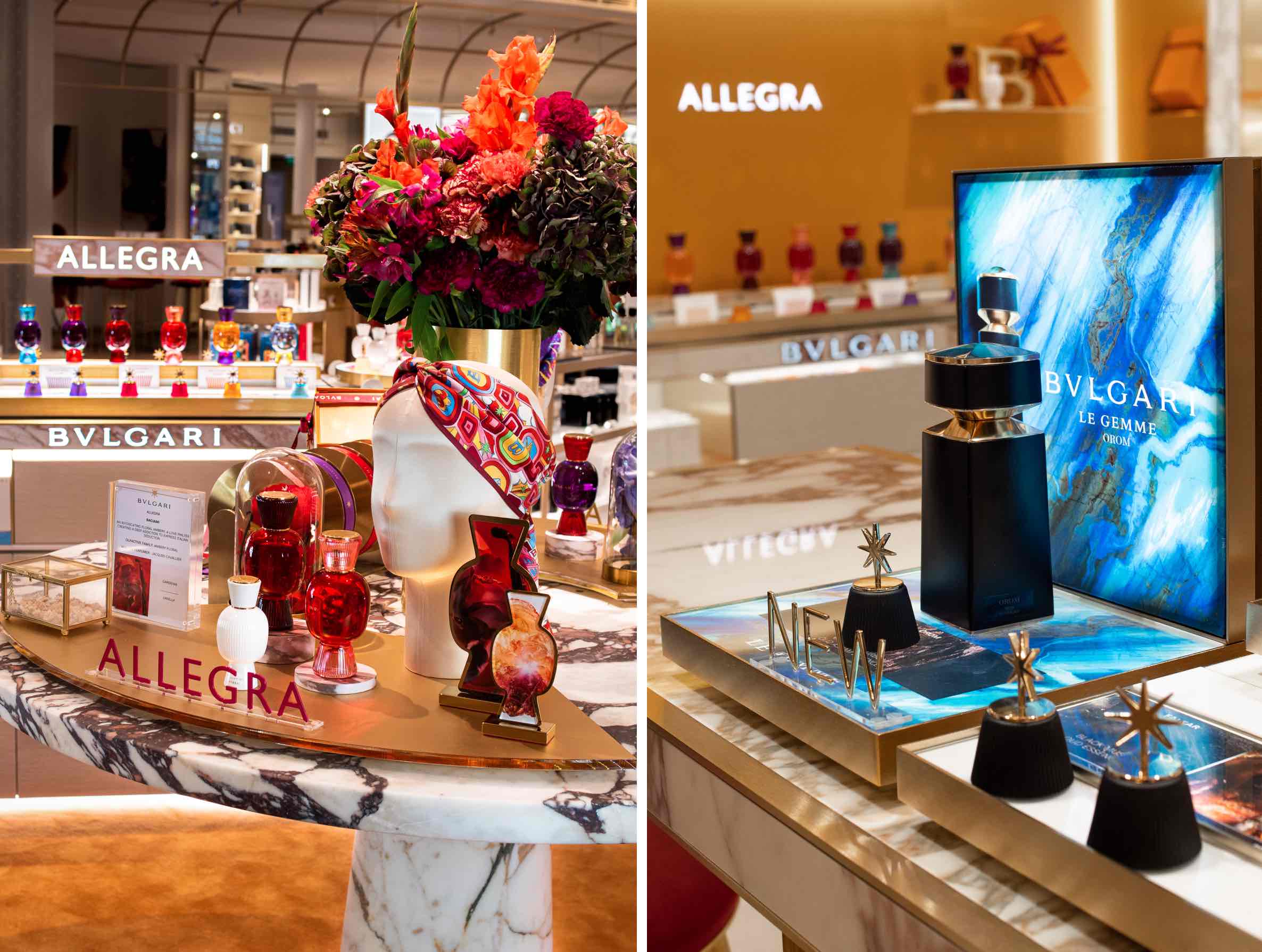
He adds, “In the post-COVID world, I don’t think the Chinese will ever go back to spending how they were during the pre-pandemic times. The past three years have changed the landscape. Chinese consumers have discovered the joys of shopping in the downtown duty free market in China, and particularly Hainan, because the retail environment, offer and prices in China are very competitive and exciting.”
Despite the obvious lack of Chinese travellers, Babin believes that travel retail has successfully adapted its approach and is now on a positive trajectory. Travel retail went from its peak in 2019 to the lowest of lows in 2020 and 2021 but 2022 has seen a strong recovery which underlines the channel’s resilience, he emphasises. “This can be partially attributed to revenge travel and revenge spending. This summer we saw a strong resurgence of travellers from the US, Middle East and Europe and certain Asian countries.”
Travel retail has undoubtedly one of the hardest-hit sectors by recent geo-political crises including COVID-19 and the war in Ukraine. But despite the inherent volatility of the channel, Babin is confident that travel retail will remain an important sales driver for Bvlgari. “Luxury clients in the airport know exactly what they want, so the airport will always have that convenience dimension that can’t be replaced,” he notes. 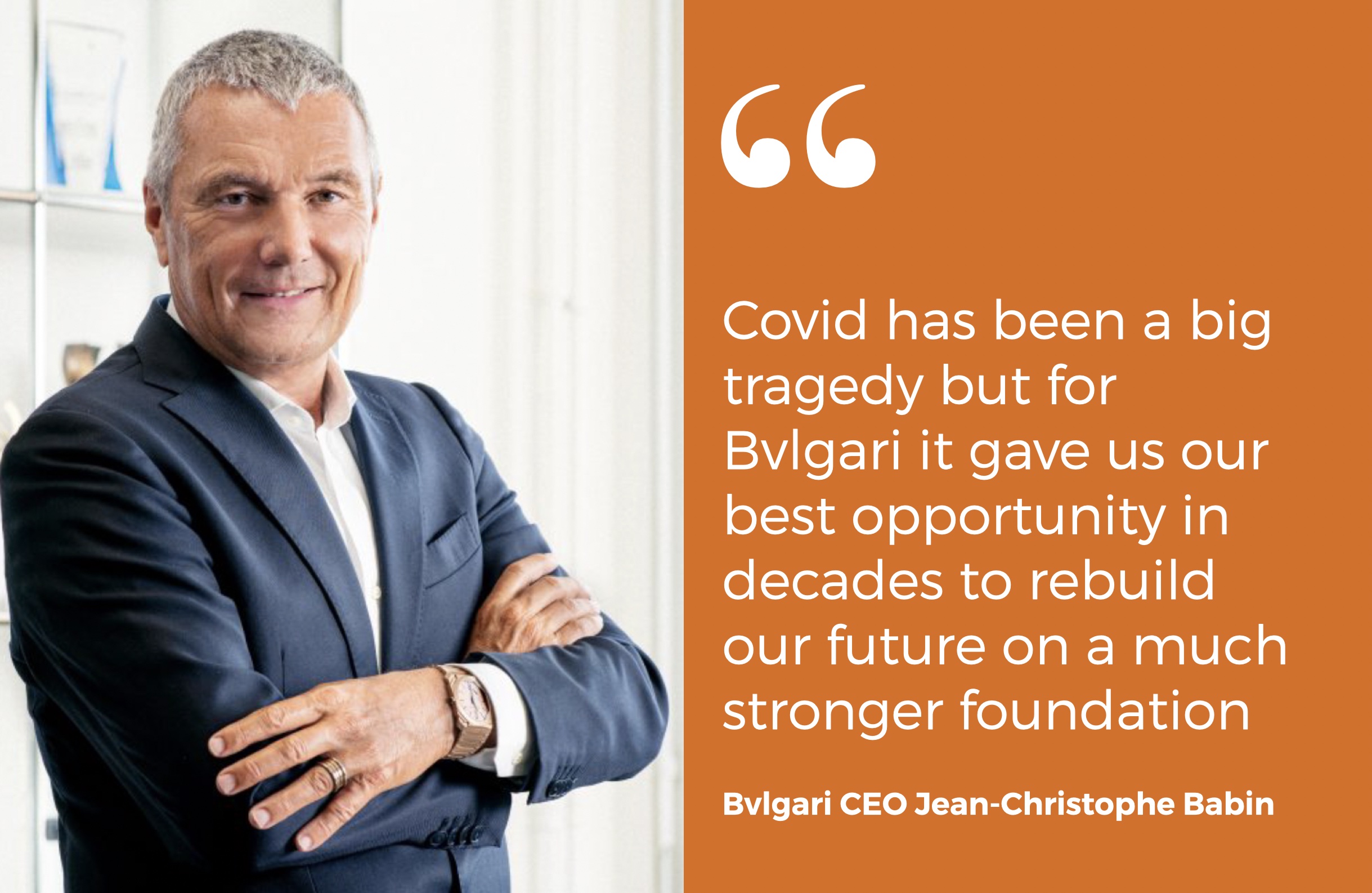
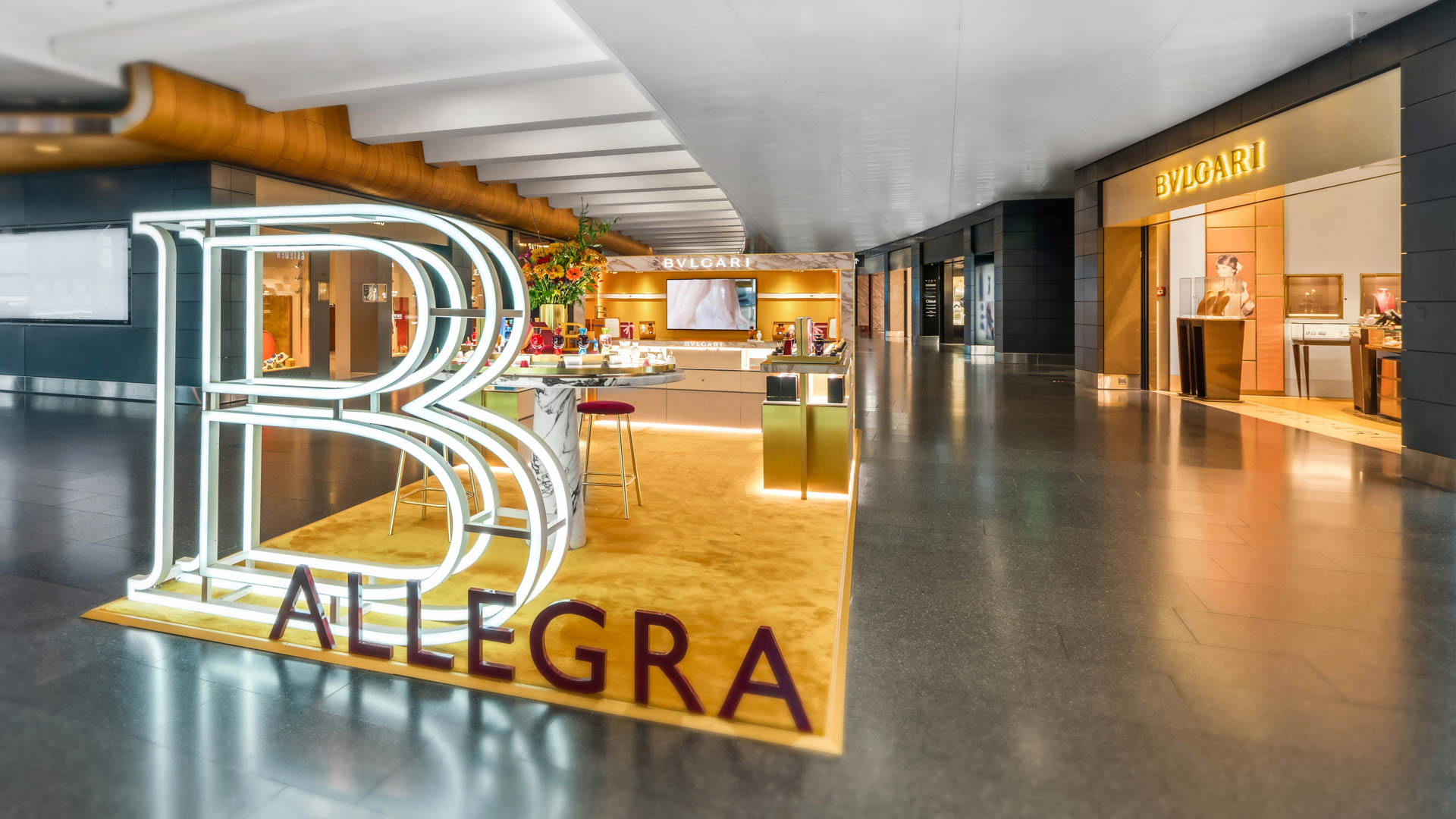
“Our clients don’t necessarily expect to have a VIP room in the airport, but they do appreciate a rich assortment and good service. Each channel has a different mission. Digital has a strong recruitment mission, the boutique is great for deciding whether a client will purchase, and then they buy the product in the airport to save on tax. It’s not brick & mortar versus digital, it’s not travel retail versus domestic. All our channels work together to deliver an enriching omnichannel experience for our clients.”
In recent years, Bvlgari has driven a streamlining of its distribution network while shifting focus to the higher-end items in its portfolio. “People now have a stronger appetite for super-luxury products and experiences, at the expense of frequency of purchases. Today, there are less luxury clients overall, but these clients are buying higher ticket items and generating more sales than before.
“COVID has had a psychological impact on the planet, making people realise the value of freedom and enjoying life. We’ve seen a similar phenomenon across all categories and all nationalities.”
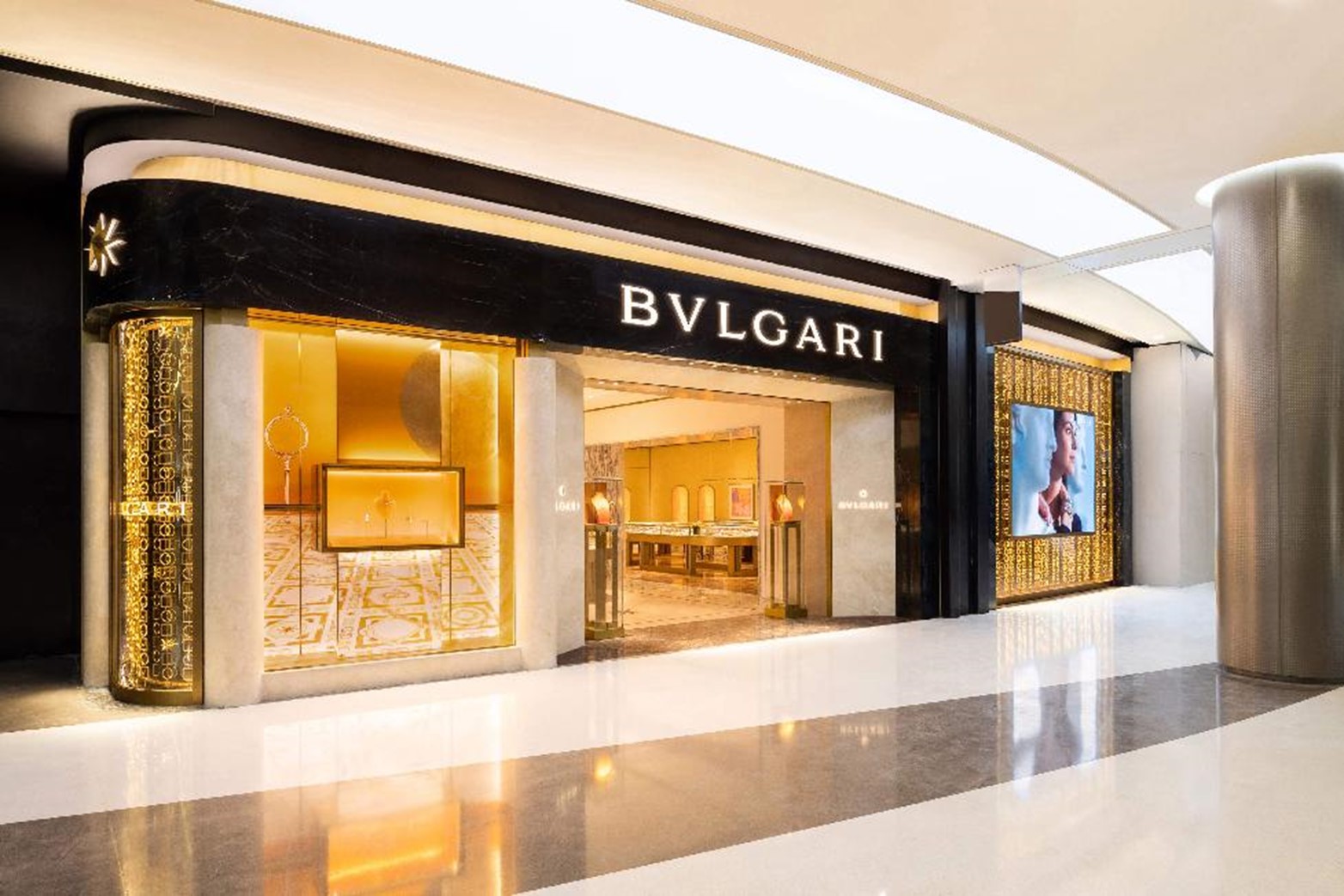
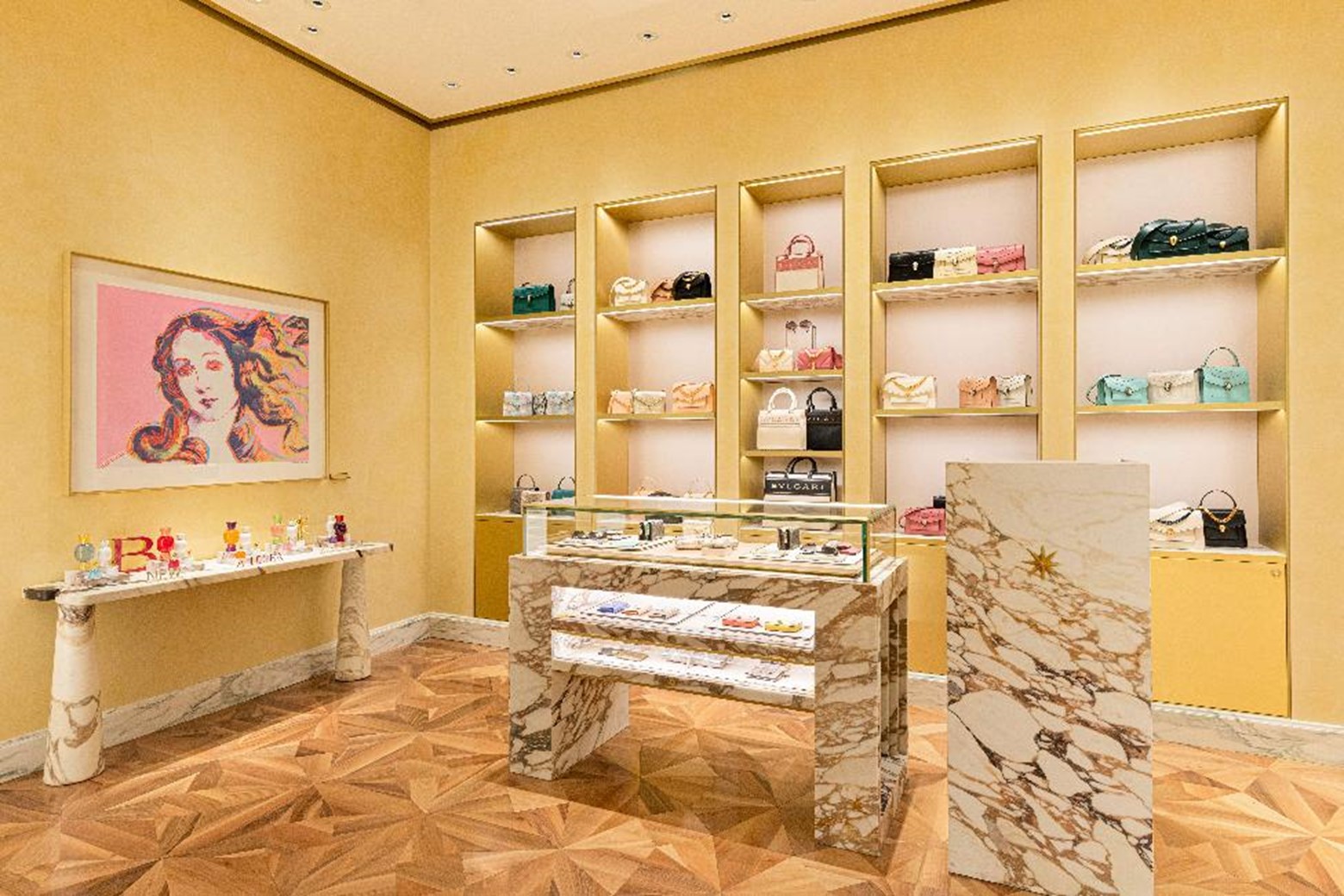
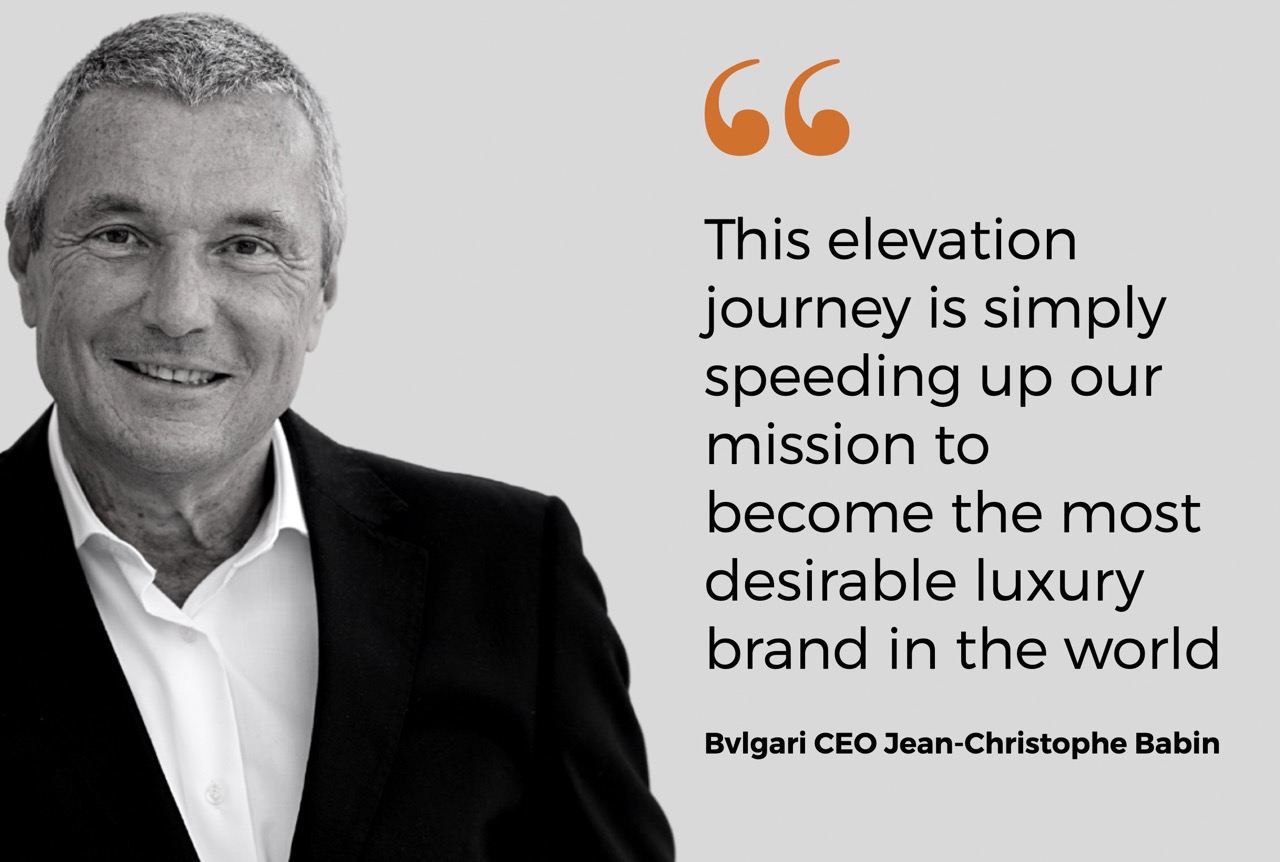
Babin adds, “Looking at our sister brands in LVMH and our competitors, we see this phenomenon happening everywhere. Today’s luxury client wants authenticity and craftsmanship. They are searching for the pinnacle of luxury and are willing to pay for the best. So, it is our job to upsell to this type of client.”
According to Babin, this elevation journey is already yielding results despite the uncertainty of the global economy. “In 2021, we were surprised to beat 2019. Recovery has been faster than expected and that is driven by that underlying dynamic of clients buying less but better.
“In the second half of 2022, COVID struck China hard. At the same time in Europe, the war in Ukraine is creating a lot of unrest, inflation, currency swings and so we’re entering 2023 in a different environment compared to last year. It’s difficult to predict what will happen next, so you must be very agile. Our focus is on the high rather than the low. 2023 will be a year of upselling.”
This premiumisation strategy has been rolling out across Bvlgari’s powerful multi-category portfolio of watches, fine jewellery, fashion, fragrances and hotels. Babin says, “You can see this in fragrances with our Le Gemme, Allegra lines. In jewellery you’ll see this in Serpenti and Octo. There is more focus than ever on high jewellery. So much of our media budget is now dedicated to high jewellery and our luxury hotels speak for themselves. This elevation journey is simply speeding up our mission to become the most desirable luxury brand in the world.
“To become the world’s most desirable brand, you must shift focus towards the super-premium end of the luxury spectrum. Five years ago, 70% of our jewellery inventory was under US$5,000. Next year, I expect that only 20% will be below US$5,000. This is a significant shift. We’re not changing our collections; we’re just pushing the higher end of our jewellery offer. Upselling is more important than ever, and this is supported by strong clienteling.”
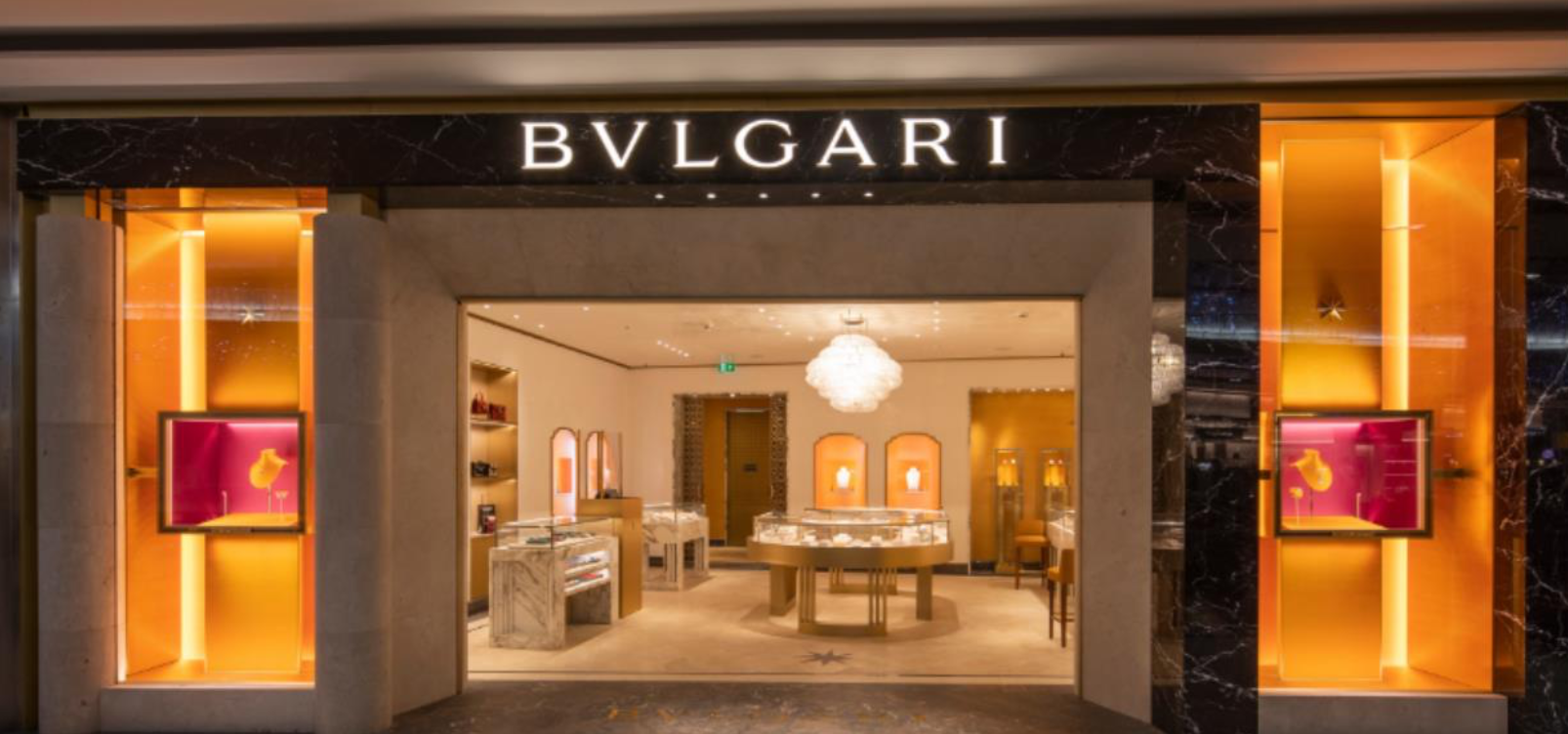
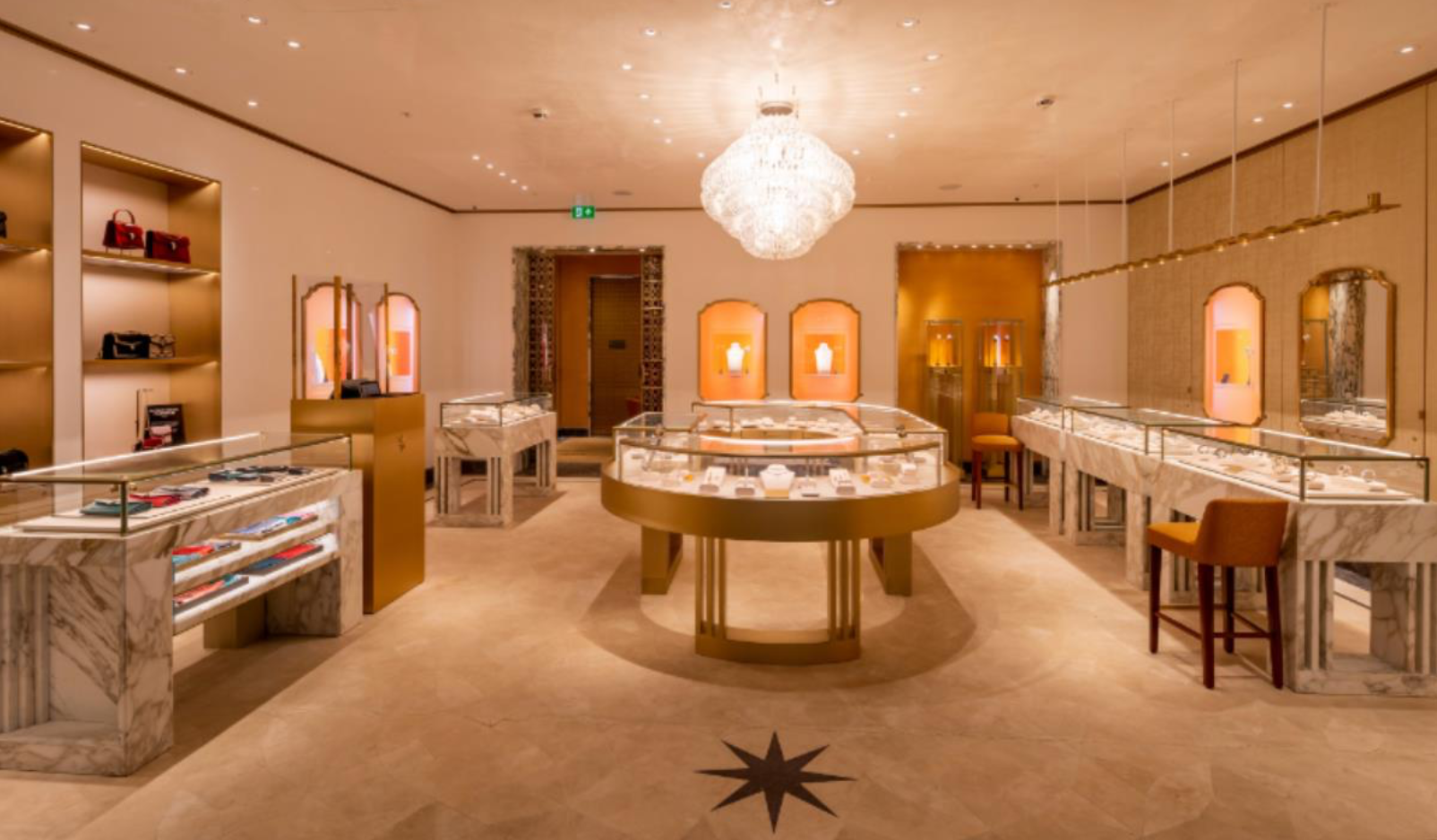
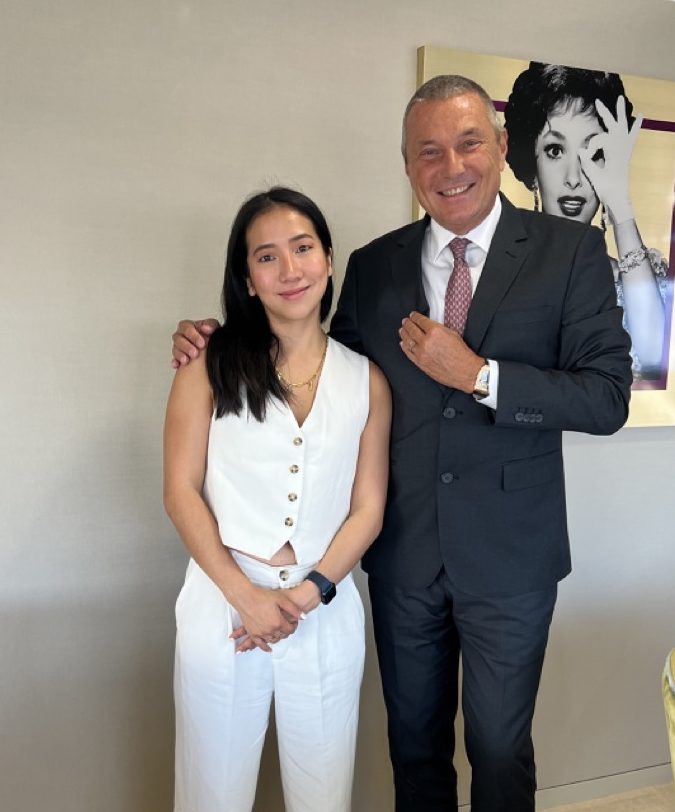
Another important shift in the luxury sector is the growing importance of sustainability, transparency and ethical business practices. According to Babin, good Environmental Social Governance (ESG) has been integral to how Bvlgari has and will continue to operate. He says: “We are the first jeweller who was gone 100% plastic free for all our packaging.
“Sustainability is at the core of our fragrance business. We recently started collaborating with Firmenich [the world’s largest privately-owned fragrance and taste company -Ed] and Indian farmers for the sustainable sourcing of our fragrance ingredients. Through this partnership, we are promoting and financing sustainable agriculture because it’s important that what is in our fragrance bottles is as sustainable as the packaging.
“We’re also very committed to the responsible sourcing of our jewels, gold, silver and diamonds. Good values may be what swings a client from brand A to brand B, and they could be the final push towards conversion. Good values can turn you from a brand that a customer respects to a brand that a customer loves.
“We also can’t ignore the huge importance of ESG to a company internally. Our efforts to minimise plastics and empower the communities we work with is a huge source of pride for our 7,000 colleagues. They are proud to be part of a company which is ethical, environmentally conscious and committed to making a positive impact. If you want to attract talent and prime clients, you need to have good ethics,” he adds.
One of the key factors driving Bvlgari’s elevation journey is the return of one-on-one clienteling, Babin explains. “Thanks to COVID, we’re closer than ever to our clients. Globalisation and expansion have made a lot of houses lose sight of their clients, but one-to-one clienteling has come back because of the pandemic. This is a new way of selling that goes back to the basics of retail. COVID has forced us to rekindle our personal relationships with clients and enrich that with emotional experiences.
“COVID has been a big tragedy but for Bvlgari it gave us our best opportunity in decades to rebuild our future on a much stronger foundation. The strongest part of this has been recreating an intimate and personal connection to our clients, by offering them not only amazing products but also unforgettable experiences.” ✈





